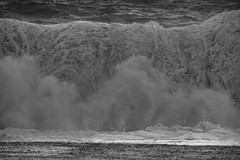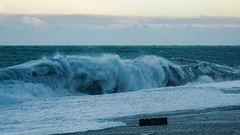Hera’s father works for the local government and was telling us yesterday about “SOP” – Standard Operating Procedure. It’s the term for executive-level corruption in the Philippines. SOP is the jacking up of the price of government projects by contractors who then pass the extra cash on to government officials. I was told last night by the Mayor’s speech writer that any project more than 20 million pesos (about $500,000) gets 30% or more SOP. The money gets spread down from presidents, governors, mayors and down to barangay (neighborhood/sub-district) chiefs. It’s Standard Operating Procedure because no one needs to ask for it, it just comes. There effectively is no non-corrupt executive leader in the Philippines. They don’t need to do anything other than do their jobs building roads, bridges, schools and hospitals and the dirty money flows right into their hands.
China has corruption too, of course, but it’s different.
I think there’s definitely a lot of this happening with contracts too in China but I would imagine it’s nothing like SOP in the Philippines. I imagine a Chinese leader needs to wade out in the mud a little bit to get that kind of dirty money. In China, I think, “SOP” is more about guanxi (relationships or connections). Everything is about who you know. If you know the right people, whatever business you’re in is privileged and everything goes a lot smoother. When you have troubles they disappear faster. When you break laws the rules bend. Conversely, if you have no guanxi, small issues can become nightmares quickly.
There is no rule of law in China and it seems almost every one, especially businesses, are breaking some law or another that’s never once been enforced. Sometimes this is referred to “one eye open, one eye shut” and usually keeps people and businesses on their toes policing themselves. It’s best to not stick your neck out if you don’t know if you’re breaking a rule that might or might not be enforced. I’ve seen English training centers nearly pushed out of business by having their foreign teachers harassed until they quit about having the right visa issued in the wrong city. Once they hired a new set of (disposable part-time) teachers, they were shut down week after week for fire safety code violations. This in a place where a club fire killed 43 people two years ago and I’ve never seen a fire drill or plan at any elementary school I’ve worked at. There’s certainly not a lot of fire safety inspections going on unless someone, somewhere, wants to give you trouble.
The kicker is that in China guanxi can be inherited, lucked into, and bought. The under-reported story of China at the moment are the “Princelings”, the children and grandchildren of government leaders past and present. The run the phone and power companies and get into the best schools. No one challenges this. It’s SOP. Guanxi can also be lucked into. You can have classmates and childhood friends who grow up to be powerful or successful. It’s expected they’ll help you when and where they can. Finally, the relationships can be bought. The hongbao (Red Envelope) traditionally given to children during Spring Festival can also be given to people with power and influence.
I have friends who give hongbao to a moderately ranked police officer. They need it because their son is half Chinese, half American. They usually have issues enrolling him in schools and sometimes even getting him in and out of China. That police officer in turn uses his own connections to get them the documents they need to get what they need done.
Which is better? It would seem that China’s culture of corruption, though awful, is far more conducive to growth and development. Anyone who spends any time in the Philippines knows that it’s a country that needs more and better roads, more efficient electrical grids, better hospitals, and more classrooms. A 30% automatic overhead on any and all of those projects means they’ll just never get done, or never get done at the quality and capacity that they need to be done at. Despite China’s corruption problems, the government has built 30,000 miles of highway in a decade. New hospitals, schools, airports, shipping ports are being built or expanded everyday. China and the Philippines are both growing fast per GDP, but it’s only in China that you see the public fruits of that growth.











1 Trackback or Pingback for this entry:
[…] can’t seem to shake corruption in her administration. As I mentioned in an earlier post, the Standard Operating Procedure (SOP) is a form of corruption that affects every executive leader from the President on down. […]